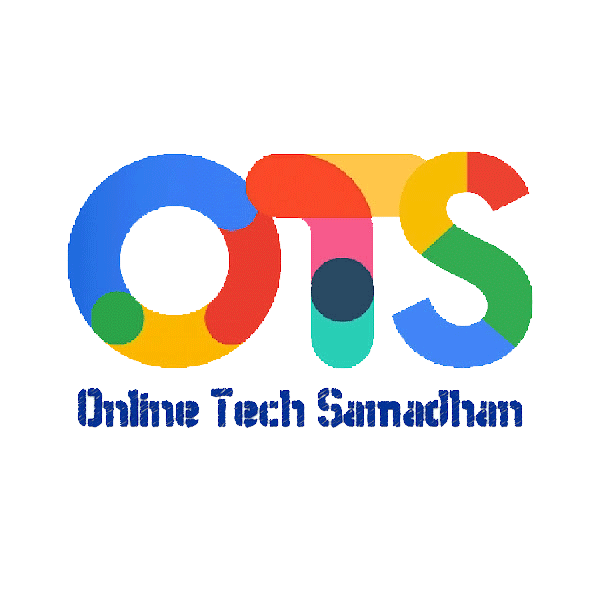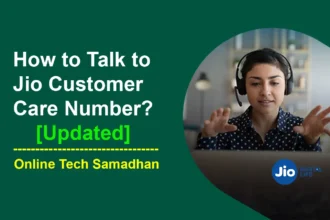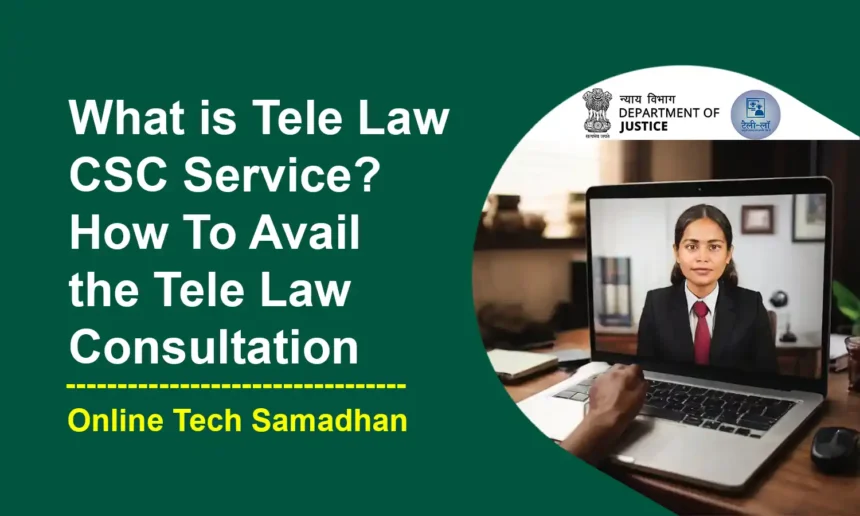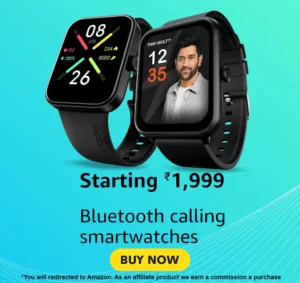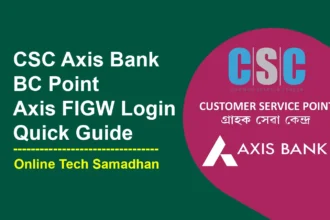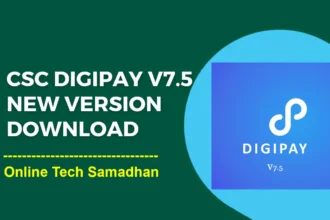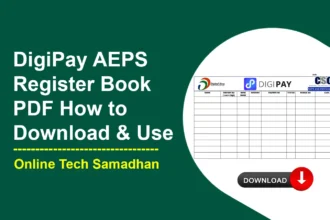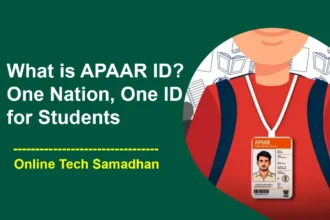Legal Help Made Easy: Tele Law CSC Service at Your Fingertips
Tele Law CSC Service is a fantastic initiative that uses Voice calls and video calls to communicate with lawyers with people who need legal advice. This service is mainly offered through Common Service Centers (CSCs) at the local village level, aiming to help those who may find it hard to get legal support. It’s all about closing the gap between legal help and those who might be left out, like people in smaller villages or facing challenges. With Tele Law CSC, everyone gets a fair chance to access the legal advice they need, making it simpler and more reachable for everyone.
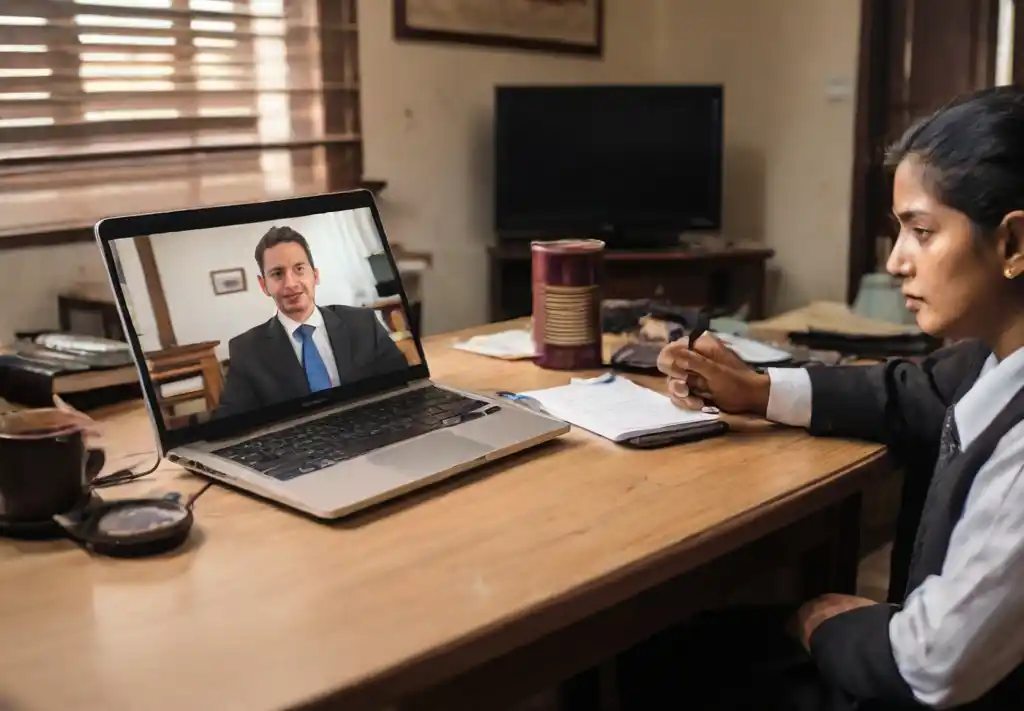
Benefits of Tele Law CSC Service
There are remarkable advantages of Tele Law CSC Service. Let’s Explore the benefits of Tele Law CSC
- Convenience: Get legal advice from your nearby CSC, saving you from traveling long distances to reach lawyers or courts.
- Remote Consultation: Consultations take place through phone or video calls, making it easy for those with mobility limitations or busy schedules.
- Cost-effective: It’s free for those eligible under Section 12 of the Legal Services Authorities Act, 1987. Others pay only a nominal fee of Rs. 30, making legal consultation more affordable compared to private lawyers.
- Time Savings: By avoiding travel and court wait times, you save precious time and resources.
- Basic Legal Understanding: CSC VLEs (Village Level Entrepreneurs) provide initial insights into your legal issue before connecting you with a lawyer.
- Increased Knowledge: Tele Law consultations enhance awareness of legal rights and procedures, empowering individuals to handle legal matters more effectively.
- Privacy and Confidentiality: Consultations are confidential and conducted in a private setting, ensuring your privacy.
- Multilingual Support: Tele-Law services are often available in various languages, making them accessible to diverse communities.
- Reduced Burden on Courts: By offering initial legal guidance and resolving minor issues, Tele-Law contributes to decreasing the workload on court systems.
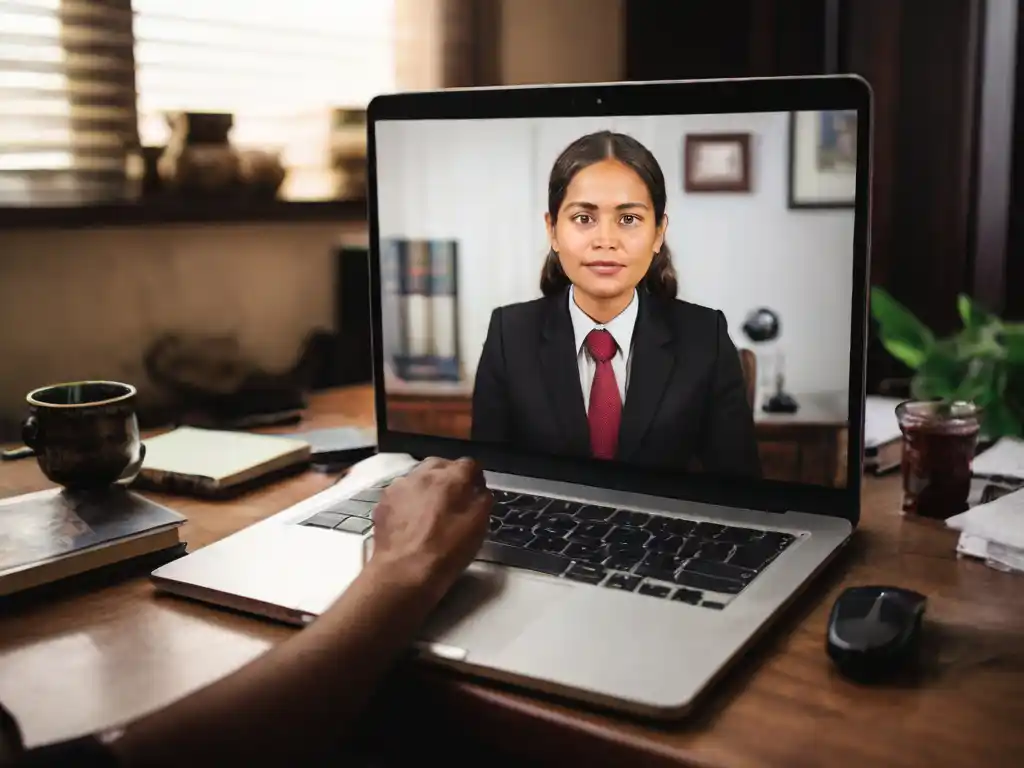
Eligibility for Tele Law CSC Service
Tele Law service is inclusive and caters to various segments of the population. Those eligible for free legal aid include women, children, individuals belonging to Scheduled Castes and Scheduled Tribes, victims of trafficking, mentally ill and differently-abled people, victims of natural disasters or ethnic violence, unorganized and industrial workers, under trials, and people with low income.
You May Love To Read
- Women
- Children
- Persons belonging to Scheduled Caste and Scheduled Tribe
- Victims of Trafficking
- Mentally ill and differently-abled people
- Victims of natural disaster/ethnic violence
- Workers in unorganized /industrial workers
- Under trials
- People of low-income group
Types of Cases Covered by Tele Law CSC Service
The range of legal matters that can be addressed through Tele Law CSC Service is extensive. From accidental compensation cases to family disputes, land disputes, and issues related to labor, the service covers a wide spectrum. Whether it’s consumer disputes, corporate matters, criminal issues, or matters related to child marriage, Tele Law CSC Service aims to provide comprehensive legal assistance.
- Accidental Compensation Case: Seek legal assistance for compensation related to accidents or injuries.
- Child Labour/Bonded Labour, Right to Education: Address issues related to child labor, and bonded labor, and ensure the right to education.
- Civil Suit: Legal support for disputes between individuals or entities that are not criminal.
- Consumer Dispute: Resolve conflicts between consumers and businesses regarding products or services.
- Corporate Matter: Legal guidance on issues related to businesses and corporate entities.
- Criminal Matters – Arrest, F.I.R, Bail: Assistance in criminal cases involving arrest, filing of FIR, or obtaining bail.
- Delay or Rejection in Providing Basic Services Matters: Legal recourse for delays or rejections in receiving essential services.
- Dowry, Family Dispute, Talak, Protection of Women Against Domestic Violence: Support for issues like dowry, family disputes, divorce (Talak), and protection against domestic violence.
- Equal Pay for Equal Work, Minimum Wages: Legal help for cases related to fair wages and equal pay.
- Family, Matrimonial, Succession Matters: Assistance in matters concerning family, marriage, and inheritance.
- Land Disputes, Tenancy and Lease, Property and Inheritance Rights: Resolve conflicts related to land, rental agreements, and property inheritance.
- Maternity Benefits, Medical Termination of Pregnancy, Prevention of Misuse of Pre- and Post-Natal: Legal support for maternity-related issues, including termination and prevention of misuse.
- Negligence Matters: Address legal concerns related to negligence in various contexts.
- Prevention of Atrocities Against Scheduled Caste and Scheduled Tribes: Legal aid for cases involving atrocities against marginalized communities.
- Prohibition of Child Marriage: Seek assistance to prevent child marriages and address related issues.
- Property Dispute: Resolve conflicts related to property ownership and boundaries.
- Protection of Children from Sexual Offences: Legal support for cases involving the protection of children from sexual offenses.
- RTI (Right to Information): Assistance in matters related to accessing information through the Right to Information Act.
- Service Matter: Legal help for disputes related to employment or service-related matters.
- Sexual Harassment of Women at Workplace (Prevention & Prohibition): Address and prevent workplace sexual harassment through legal means.
- Tenancy and Lease Related Matter: Assistance in disputes related to renting and leasing property.
- Women, Children, and Senior Citizens Maintenance: Legal support for maintenance-related issues affecting women, children, and senior citizens.
- Words, Acts, Gestures Intended to Insult the Modesty of Women, Indecent Representation of Women: Legal recourse for offenses against the modesty and dignity of women.
- Others (Scholarship, Aadhaar Card, Bank Loan, Incorrect Name, D-Voters, Cheque Bounce, Electricity Matter, PAN Card, Labour Matter): Miscellaneous legal assistance for a range of issues, including documentation, financial matters, and labor disputes.
Role of VLE in Tele Law CSC Service
The VLE acts as a bridge, making the entire process smooth and convenient for individuals seeking legal assistance through the CSC Tele Law Service. The VLE makes CSC Tele Law Service accessible and user-friendly. Here’s a step-by-step guide on how the VLE assists you:
- Contact Details: The VLE will provide you with the name and contact details of the PLV (Para Legal Volunteer) linked to his CSC. If you’re unsure, you can directly approach the VLE at the CSC and inquire about the Tele Law Service.
- Benefits Briefing: The VLE will explain the advantages of seeking legal advice through Tele Law Service, ensuring you understand the benefits.
- Registration Assistance: To avail of the Tele-Law Service, the VLE will register you as an applicant. This involves uploading your details and necessary documents through the Tele-Law portal.
- Appointment Generation: The VLE will generate an online appointment for you to connect with a Panel Lawyer. This connection happens through a Video Conferencing Facility (VCF) or chat/telephone available at the CSC.
- Automatic SMS Notification: Once the appointment is set, an automatic SMS will be sent to your registered mobile number. This SMS will include details like the date and time of your consultation, ensuring you stay informed.
What is PLV and Where to Find Them
Para Legal Volunteers (PLVs) are integral to the Tele Law CSC Service.
Finding the contact details of the PLV (Para Legal Volunteer) near you for Tele Law CSC Service is simple. Just follow these easy steps:
- Visit the Link: Go to http://www.tele-law.in/static/tele-law-csc.php.
- State Selection: The link will show you the states where Tele Law services are available. Click on the name of your state or the state you belong to.
- CSC Details: A list of selected CSCs with addresses and contact details of PLVs will appear.
- Contact the PLV: You can either call the provided number of the PLV or directly visit the CSC at the given address.
- Village Headmen: Additionally, you can inquire about PLV details in your village through the Village Headmen.
Steps to Avail Tele Law CSC Service
To avail of the Tele Law CSC Service, follow these steps:
- Visit the Link: Head over to http://www.tele-law.in/static/tele-law-csc.php.
- State Selection: The link displays the states where Tele Law services are offered. Simply click on your state or the one you’re associated with.
- CSC Details: A list of chosen Common Service Centers (CSCs) with addresses and contact info for PLVs will pop up.
- Contact the PLV: Reach out to the PLV by either calling the provided number or paying a visit to the CSC at the given address.
- Village Headmen: For an extra avenue, you can also check with the Village Headmen in your area about details for the PLVs.
Tele Law Portal
The Tele Law portal is a user-friendly platform that facilitates the entire process, from registration to appointment scheduling. It serves as a centralized hub for individuals seeking legal advice and ensures a seamless experience throughout the Tele Law CSC Service.
Tele Law Appointment Process
Following these easy steps, you can easily schedule and conduct a Tele-Law appointment, making legal assistance.
- Visit your Nearest CSC (Common Service Center): Common Service Centers, often found in villages or rural areas, provide various government services.
- Inform the CSC VLE (Village Level Entrepreneur): Let the Village Level Entrepreneur (VLE) at the CSC know that you wish to schedule a Tele-Law appointment.
- Provide Basic Details: The VLE will do a Tele Law CSC Login and ask for basic information about your legal issue, like the problem’s nature and any relevant documents.
- Choose a Preferred Language: Tele-law consultations are available in multiple languages, allowing you to select the one most comfortable for you.
- Schedule Your Appointment: The VLE will check for available lawyer slots and set up your consultation at a convenient time. You can opt for a phone call or video call based on your preference.
- Wait for Your Appointment: On the agreed date and time, the VLE will connect you with the lawyer for your consultation.
- Discuss Your Legal Issue: During the consultation, share the details of your problem and ask any questions you may have. The lawyer will offer legal advice and guidance tailored to your situation.
- End the Consultation: Once you’ve received the necessary information and advice, express gratitude to the lawyer and conclude the call.
How Tele Law CSC Service Connects Lawyers and Litigants
Through the use of Video Conferencing Facility (VCF) and telephone services available at CSCs, Tele Law CSC Service creates a virtual bridge between lawyers and litigants. This not only saves time and resources but also enhances accessibility to legal assistance, especially for those in remote or underserved areas.
You May Love To Read
Tele Law CSC Service has brought about transformative changes in the lives of individuals, irrespective of their background or location. These success stories vividly illustrate the profound impact of the service, showcasing how people have triumphed over legal challenges. From remote villages to urban settings, individuals have found empowerment through accessible legal advice.
For instance, a villager facing a property dispute received valuable guidance, ensuring a fair resolution. In another case, a working woman navigating workplace harassment found support and recourse through Tele Law CSC. These real-life narratives underscore the service’s effectiveness in delivering tailored legal solutions, proving that distance and circumstances are no barriers to justice and empowerment.
Tele Law Service Challenges and Solutions
In helping people with legal issues, Tele Law CSC Service faces some challenges. These challenges can be things like problems with technology, not enough awareness about the service, or issues with organizing things efficiently. But, the team is always working hard to fix these challenges, making sure the service stays strong and easy to use.
They make the technology simple, so anyone can use it, run programs to let more people know about the service, and organize things in a way that makes it easy for everyone involved. By staying dedicated and flexible, Tele Law CSC Service keeps offering reliable legal support, overcoming any challenges that come their way.
Expanding Access to Tele Law CSC Service
Efforts are happening to bring Tele Law CSC Service to more people. They’re spreading the word through campaigns so that everyone knows about the legal help available. Partnerships with local communities are growing to build a strong support system. Also, they’re using technology to make it super easy for folks to connect and get legal advice. The goal is to make Tele Law CSC Service reach even more areas and become a helpful resource for everyone.
Legal Empowerment Through Tele Law
Tele Law CSC Service not only provides legal advice but also helps people understand the law better. It’s like a guide that makes legal help available to everyone, no matter their money or where they live. This service empowers individuals, giving them the knowledge to confidently stand up for their rights. In a world where legal things can be confusing, Tele Law CSC Service is like a friend, making legal understanding and empowerment simple and accessible for everyone.
Conclusion
Tele Law CSC Service is like a friendly guide, making legal help easy for everyone. It breaks down barriers and supports those who need it. Through the use of technology and community engagement, this service ensures that access to legal counsel is a fundamental right for all people. It’s simple and user-friendly, understanding that everyone, no matter their background, should be able to get the help they need. In a nutshell, Tele Law CSC Service is all about making the legal system fair and open to everyone, so you can know and protect your rights easily.
FAQs
Is Tele Law CSC Service available nationwide?
Yes, efforts are being made to expand the service nationwide.
How much does Tele Law CSC Service cost for eligible individuals?
The service is free for those eligible for free legal aid. Others can avail it for a nominal fee of Rs 30.
Can I directly approach a Panel Lawyer without going through the VLE?
No, the VLE plays a crucial role in facilitating the connection between individuals and Panel Lawyers.
What types of cases are covered under Tele Law CSC Service?
A wide range of cases, including civil suits, criminal matters, family disputes, and more, are covered.
How can I share feedback about my experience with Tele Law CSC Service?
You can provide feedback through the Tele Law portal or directly to the VLE.
